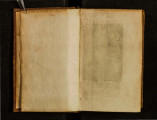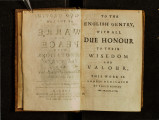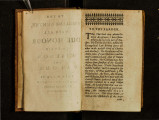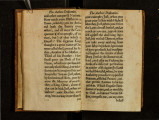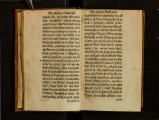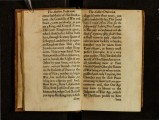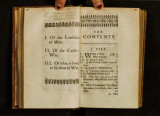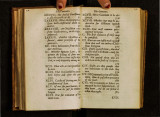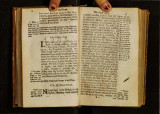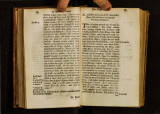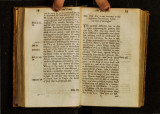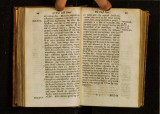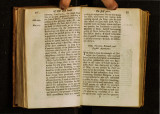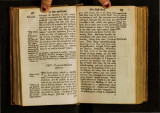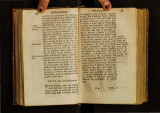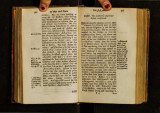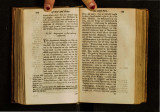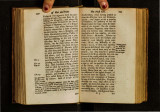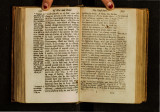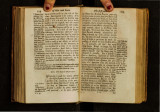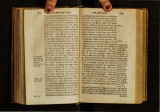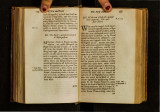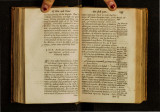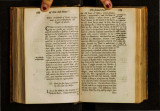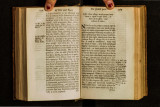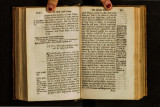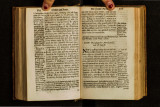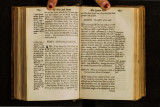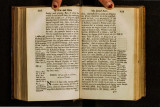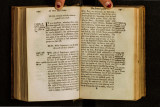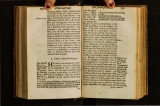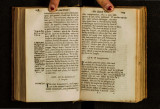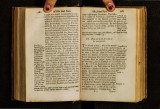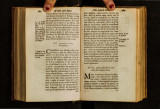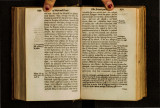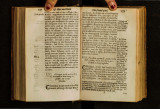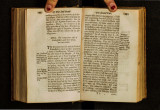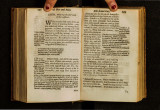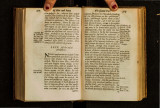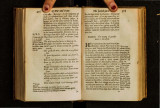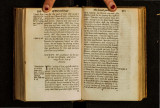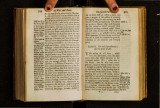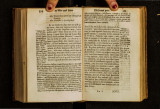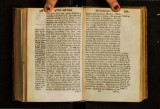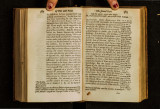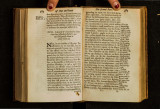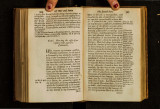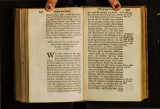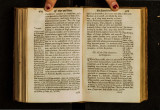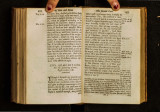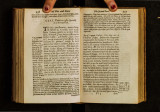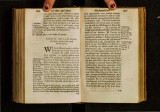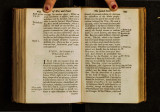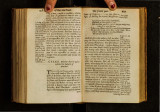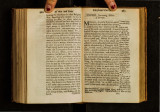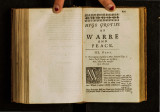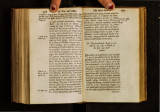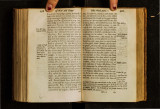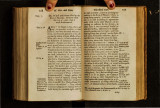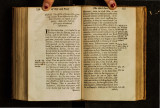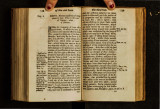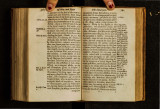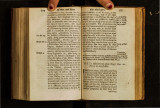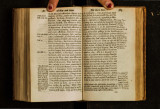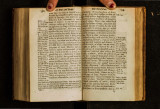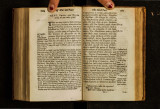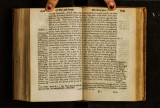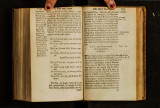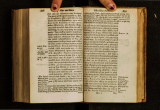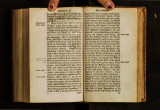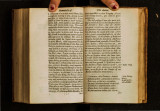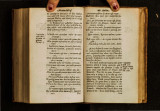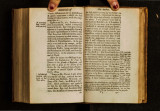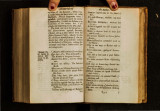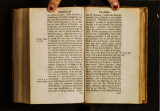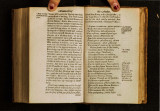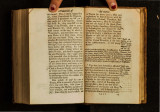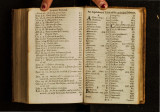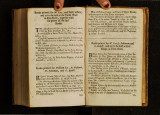| OCR Text |
Show of War ant!. Peace that jMdgeft: for, wherein thou judgeft another,thou condemneft thy fe!f: for thou ~hat judgeft doft the fame things. That of Seneca is pertinent; The fentence can have n~ authpritJ , where he that judg( th u t~ be condemned. And elfwhere , The refpe& of our felve s will mak§ us more moderate, ~fwe confult our [elves, whether we al(o have not committed the 0t .P eArrtnibnrtttJ fhi lutJe- lik!t. Amhrofe in the Apoloe'-:' y of :Da-eus ferm. 2.'9: v~d: _Hiho[oeve~ will judge of ~nother, let in Pfal. ]1eat• htm JUdge of htmfclf firft; nett her let him imm4c. ~ttm condemn lej[er faults in another~ when Ci!j]ifJd#TI f.u. himf~lf h~th committed gre~ter: Plato de Ltg. StiJ. dt cltlll~ L X X X. Of the end of punijhment. NO cent perfons are not in jurd if they are puni£hed: yet doth it not thence fol10w that always they mufi be pu~ nil}led. Nor is it true. For , both God and men forgive many things to many ncicept ones , and are praifed for ir. Famous is that faying of Plato, which Seneca turnes , to this effeet: No wife m.an inflið punifhment, becaufe a fault is done but thaf it may be done no more. For things paft cannot be revokfd: the future are p11ohi~ited. Aga~n, We will not hurt a man, hecau[e he hat}; ojfe1Jded, hut t bat he may not off~nd ; nor foal punifh· ment ever be rtferred t1 what is pa.ft, but what is to come : for {f is not linger ~~~~ Clllltl011. '11u fee8nd P4rt. 31 i e,_ution. Diodotus in Thucydides {peaking of the Mityleneans to the ~thenians , faith , ,.Although I grant them to have 4,ealt very unjuftly , yet I will not yield they foould be-Jlain, except it be expedi-ent. This is true of men punifhing : fort Caffiodor.de one man is fo bound unto another by Amicic. !?2_uod confanguinity , that he ought not hurt ft ~aflll~s unfia· h . h . b c h b . . f ca1 u a erptl or-im , Wlt out 1t e ror t e o tammg o tt l~tdat a/te-o [om~ good t• In God 'tis otherwife , to ram, illa quttt whom Plato'+ ill extends his fayings. For l.efae~ non rethe a&ions of God rna y be orouuded on pe~c~u~c , ~tt .ft t.h e n.g h t o f h'1 s 1r:u preme do m~m .w n , e1r pe- Cmgla~mt. n vmd•- cially where the fpecial merit of man is~ Gortia. ~lfo found , though they propofe unto themfel ves no end belide themfel ves : and fi> fome Hebrews ~xpo~nd that appofire Mo(es Maim." place of Salomon , lll rhts fenfe, God hath in dirtllort dtt• made afl things for the1'?J-[efves, e'ljen the bitanlium [. %.• · wi~k..fdforthe evt! day :that is, even then c.x3.&Ra6. when he punilheth the wicked, he doth zr;m. ad Prov. it for no other end , bur that he rna y pu:.. 1 ·1· ni£h. · Yet~ if:we follow the more received interpretation , 'twill be all one : that God may befaid to have made all things for him] elf: that is ~ by the right of his foveraignty and perfeCtion fee king or ref-pe& ing nothing belide himfelf : as God is faid to he of himfelf, becaufe he is not cu7ll<Pu~,. of any. Certainly ' ·that the pun1£hments of fome very wretched perfons are exa- ¢led by God , not for any thing els, the holy writ tefHfies • where we re~d , that Deur.~B.6;. he t~keth pl~afu~e in th~ir calamiry, that Ef. 1 · z4. · he' ProY. 1. 1.6. |




